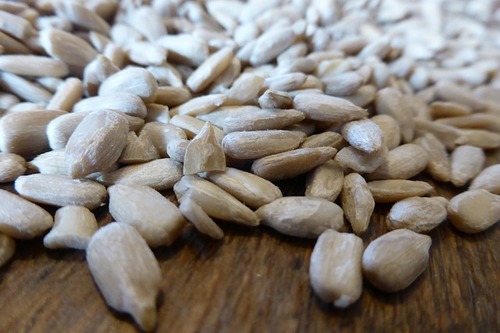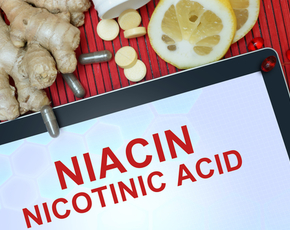Are Sunflower Seeds Bad For You?
Short answer
Eaten in excess, sunflower seeds will likely contribute to weight gain and associated side effects. However, when eaten moderately, they have a plethora of positive impacts on one's health.
Recommended Alternative
Overall beneficial to your health. Things rated a 'B' may have some harmful qualities to pay attention to.
View Full Grading System
Category 'A'
Very healthy and numerous health benefits. Side effects are rare. Things rated an 'A+' are typically necessary for survival (for example, water).
Very healthy and numerous health benefits. A few harmful qualities may be associated, but only under certain circumstances such as an allergic reaction.
Very healthy and numerous health benefits. Harmful qualities may be associated, but aren't usually serious.
It is important to note that even the best things in life can become bad in immoderate amounts. So, although something may be rated an 'A+', overconsumption/overdoing can bring unwanted effects.
Category 'B'
Very beneficial to your health. Things rated a 'B+' may have a few harmful qualities to pay attention to.
Overall beneficial to your health. Things rated a 'B' may have some harmful qualities to pay attention to.
More beneficial to your health than not. However, harmful qualities are most likely associated and shouldn't be overlooked.
The main difference between category 'A' and category 'B' is the harmful qualities typically present in 'B' items. Serious side effects are usually uncommon, but are still possible and should be taken note of.
Category 'C'
Both beneficial and harmful qualities associated. Things rated a 'C+' are typically a bit more on the beneficial side. Still, moderation is important.
A fairly even ratio of beneficial and harmful qualities. Moderation is important. Very general topics that can lean towards both sides of the spectrum will be placed here as well. Rice, for example, can be good or bad depending on the type.
More harmful than beneficial. Side effects are common, especially when consumed/done excessively. Moderation is very important.
Category 'C' usually denotes to both good and bad qualities. When it comes to this category, it is important to keep this word in mind: moderation.
Category 'D'
Harmful to your health. Although benefits may be associated, the bad most likely outweighs the good. Moderation is very important.
Harmful to your health. A few benefits may be associated, but the bad outweighs the good. Moderation is extremely important.
Harmful to your health. Very few, if any, benefits are present. Things in this category should be avoided as much as possible.
Category 'D' is typically for things that are more harmful than beneficial. While consuming/doing something unhealthy once in a blue moon shouldn't hurt, we definitely recommend eliminating 'D' items as a regular part of your routine/diet.
Category 'F'
Category 'F' is for things that fail to bring anything beneficial to the table, and are very harmful to your health. We recommend completely avoiding anything in this category. Long-term side effects of 'F' items are usually very serious.
Category 'N'
'N' stands for neutral. Things placed into this category are generally (a) neither good nor bad for you, or (b) lack the necessary evidence to reach any conclusions.
Long answer
Sunflower seeds (hulled, no salt added) contain no cholesterol, only trace levels of sodium, 16% of the daily recommended intake of dietary fiber per serving, and 13% the daily needed amount of iron per serving. They are great for people on diuretics who need to replenish their potassium levels.
Other benefits of sunflower seeds include being rich in vitamin E, vitamin B1, copper, magnesium, and selenium. These vitamins and minerals combine to help fight against inflammatory problems, protect against cancer, promote healthy skin and hair growth, aid in the production of red blood cells, keep the skin looking rejuvenated, keep the bones healthy, and calm the nerves.
Phytosterols found in sunflower seeds also work to lower LDL levels in the body. Just a single ounce of sunflower seeds contains a large abundance of the aforementioned nutrients, with 2/3 of the daily recommended amount of vitamin E being present. Sunflower seeds certainly would have the right to be considered a super food, if not for one factor - they are incredibly high in calories and fat. Consider that one serving of sunflower seeds (46 grams) contains 269 calories. Of this 24 grams are fat, with 2 grams being saturated fat. To put this into perspective, these values are for approximately 50 sunflower seeds. Eating sunflower seeds, especially in large quantities, puts you at significant risk of obesity and all accompanying risks, such as diabetes, heart disease, foot problems (such as plantar fasciitis), etc. Also, eating unhulled sunflower seeds is dangerous, as the shell may puncture the digestive tract. If you eat moderately, they can be a great source of nutrients and bring many benefits.
Possible long-term side effects
- diabetes
-
heart disease
-
obesity
Ingredients to be aware of
Benefits
- aids in red blood cell formation
-
promotes healthy skin
-
promotes healthy hair
-
decreases risk of cancer
-
helps production of nucleic acids
-
decreases ldl levels
-
naturally calms nerves
Healthier alternatives
Our Wellness Pick
(what is this?)
DAVID Sunflower Seeds
- Rich in healthy fats
- Source of fiber
- Naturally roasted
- Convenient snack size
- Salt-enhanced flavor
Learn More!
Please turn your Ad Blocker off to see this content. Thank you!
Thank you for your feedback!
Written by Jeff Volling
Published on: 12-28-2015
Last updated: 12-15-2023
Thank you for your feedback!
Written by Jeff Volling
Published on: 12-28-2015
Last updated: 12-15-2023

 Approved by
Approved by 















